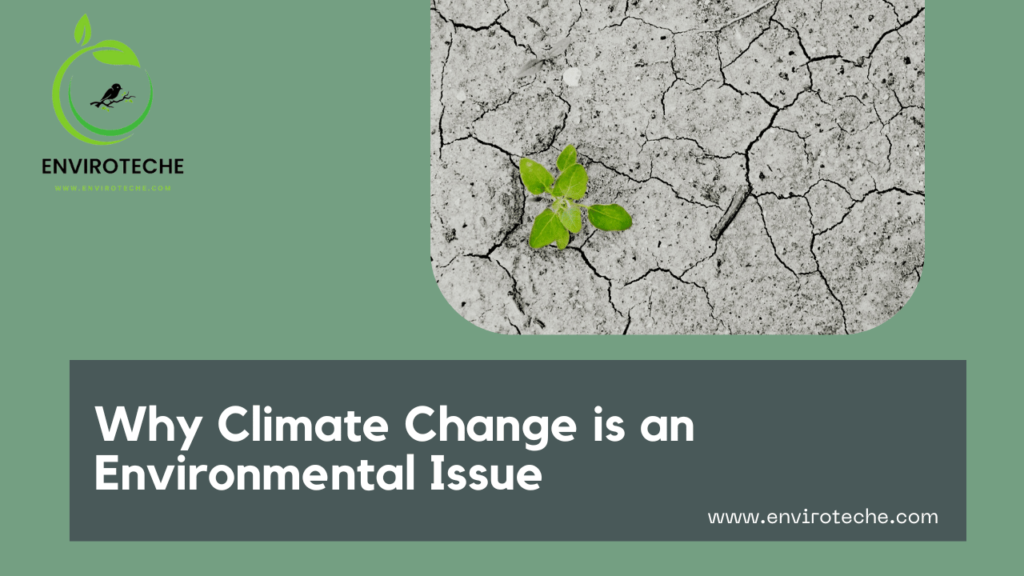
Qudrat Ullah1, Faheem Iqbal1
1Departmental of Environmental Sciences, Government College University Fiasalabad
Introduction:
Climate change is a serious problem that has drawn attention on a worldwide scale and now necessitates serious political consideration. Understanding the politics of climate change is crucial since it continues to have a profound impact on the environment, economies, and societies. The policies, tactics, and measures adopted by governments, international organizations, and other players to address the issue are included in the politics of CC (climate change).
In this blog post, we’ll look at some of the most important aspects of climate change politics, such as its historical context, the function of international organizations and agreements, the influence of politics on cc policies, and the difficulties associated with putting effective climate change policies into practice. The political argument over climate change will also be covered, along with the polarization of public and political opinion, the place of climate denial in politics, and the impact of special interests and lobbying on climate change legislation.
Lastly, we will look at possible responses to the politics of climate change, including the necessity of group effort, legislative change, and public awareness campaigns. In order to address this pressing problem and ensure a sustainable future for future generations, it is essential to understand the politics of climate change (Franco et al., 2019; MacDonald et al., 2018; Mensah, 2019; Nhamo et al., 2018; Organization, 2017; Scott & Rajabifard, 2017; Sen & Ganguly, 2017).
The science behind climate change:
The scientific community has talked extensively about the science underpinning climate change and performed substantial research into it. The majority of experts concur that human actions like deforestation and the combustion of fossil fuels, which significantly increase the release of greenhouse gases, are what is causing climate change.
This is supported by a sizable body of evidence, including as temperature records, ice core samples, and satellite data, which show that the Earth’s surface is warming and that this warming is accelerating at an unheard-of rate. The dire effects of inaction on climate change include rising sea levels, more frequent and severe weather events, a lack of food and water, and global migration.
Therefore, it is essential that we take action to reduce our greenhouse gas emissions and convert to a stronger, more sustainable economy. We will need to collaborate as individuals, businesses, and governments from all over the world to prevent the worst effects of climate change and ensure a sustainable future for both current and future generations (Ambrozic Velezmoro; Boettcher, 2021; Foster, 2012; Sawyer, 1997; Treanor et al., 2013).
The politics of climate change:
Politicians, scientists, and members of the general public have been debating the politics of climate change for decades. There are many different political stances on climate change, from those who think it is a significant problem that needs to be handled right away to those who completely reject its existence. Ideology, economic concerns, and cultural values are only a few of the many influences on political opinions on climate change.
For instance, because they place a higher priority on economic development and individual liberty, conservative politicians are more likely to be dubious about climate change than progressive politicians, who are more likely to be concerned about its effects on society and the environment. The political discussion surrounding climate change policies is frequently heated and polarizing, with various stakeholders arguing for various stances on the problem. While some urge for more market-based approaches like carbon taxes and cap-and-trade schemes, others favor more regulatory ones like emissions standards and requirements for renewable energy.
Geopolitical factors have an impact on the discussion of climate change policies as well, with nations like the United States and China vying for influence in the global transition to a low-carbon economy. Ultimately, the politics of climate change is a complicated and dynamic topic that necessitates cooperation and coordination among all stakeholders in order to make significant advancements toward a future that is more sustainable (Blais-McPherson & Rudiak-Gould, 2017; Head, 2022a, 2022b; Kang, 2015; Long et al., 2022).
Why climate change is more than just an environmental issue:
The effects of climate change go far beyond the environment, making it a complicated problem. It has numerous and varied effects that affect both social and economic systems. We should expect to see natural disasters that occur more frequently and are more severe, shortages of food and water, and forced evictions from their homes as global temperatures increase and weather patterns become more unpredictable. Marginalized groups, which frequently already struggle with problems like poverty, food insecurity, and a lack of resources, will be most affected by these effects. Social justice is a factor in climate change, in addition to the environment.
It touches on racism, gender injustice, and wealth inequality, among other social justice problems. For instance, communities of color and those with lower incomes are more likely to live in areas that are highly polluted, which can exacerbate the effects of climate change. Similarly to this, women and girls are more inclined to experience the adverse consequences of climate change, such as insecurity regarding water and food, due to gender imbalances that limit their access to resources. We must put in place measures that are both environmentally and socially sustainable in order to address climate change and its consequences for social justice.
This entails making investments in renewable energy, encouraging sustainable agriculture, and giving marginalized populations’ needs first priority when making policy choices. By approaching climate change holistically, we can make sure that our efforts not only lower emissions and lessen its effects but also advance a more just and equitable society for all (Chandra et al., 2017; Fernandes-Jesus et al., 2020; Gunaratne et al., 2021; Gutierrez & LePrevost, 2016; Kemp et al., 2015; Levy & Patz, 2015; Thomas et al., 2019).
Summary:
In conclusion, the blog post covered the politics of climate change and the reasons it transcends simple environmental concerns. We discussed the climate change science, the many political stances, and the negative social and economic effects of inaction. It is obvious that climate change is a complicated problem that needs a comprehensive approach to solving.
In addition to tackling social justice concerns and the needs of communities who are most impacted, we must address the underlying causes of climate change. It is up to each and every one of us to take initiative and fight for change in our neighborhoods, governments, and workplaces. By lowering our carbon footprint, supporting climate-friendly legislation, and spreading awareness of the pressing need for action, we can make a difference. Together, let’s create a sustainable future for our generation and those to come.
References:
Ambrozic Velezmoro, J. A. Human Ecology in Saint John Paul II and Benedict XVI and its Contribution to the Debate on Sustainable Development.
Blais-McPherson, M., & Rudiak-Gould, P. (2017). Strengthening inter-disciplinary and inter-ideological collaboration on REDD: A cultural theory approach. Global Environmental Change, 42, 13-23.
Boettcher, K. (2021). SEEING RED OVER THE CLIMATE CRISIS: ECOSOCIALISM AS EMERGENCY BRAKE. California State University, Stanislaus.
Chandra, A., McNamara, K. E., Dargusch, P., Caspe, A. M., & Dalabajan, D. (2017). Gendered vulnerabilities of smallholder farmers to climate change in conflict-prone areas: A case study from Mindanao, Philippines. Journal of Rural Studies, 50, 45-59.
Fernandes-Jesus, M., Brendon, B., & Diniz, R. F. (2020). Communities reclaiming power and social justice in the face of climate change. Community Psychology in Global Perspective, 6(2/2), 1-21.
Foster, J. M. (2012). The sustainability mirage: Illusion and reality in the coming war on climate change: Routledge.
Franco, I., Saito, O., Vaughter, P., Whereat, J., Kanie, N., & Takemoto, K. (2019). Higher education for sustainable development: Actioning the global goals in policy, curriculum and practice. Sustainability Science, 14, 1621-1642.
Gunaratne, M. S., Radin Firdaus, R., & Rathnasooriya, S. I. (2021). Climate change and food security in Sri Lanka: Towards food sovereignty. Humanities and Social Sciences Communications, 8(1).
Gutierrez, K. S., & LePrevost, C. E. (2016). Climate justice in rural southeastern United States: a review of climate change impacts and effects on human health. International journal of environmental research and public health, 13(2), 189.
Head, B. W. (2022a). Wicked problems in public policy: Springer.
Head, B. W. (2022b). Wicked problems in public policy: understanding and responding to complex challenges: Springer Nature.
Kang, L. (2015). Interests, values, and geopolitics: The global public opinion on China. European Review, 23(2), 242-260.
Kemp, S. P., Palinkas, L. A., Wong, M., & Wagner, K. (2015). Strengthening the social response to the human impacts of environmental change. Grand Challenges for Social Work Initiative Working Paper, 5, 1-31.
Levy, B. S., & Patz, J. A. (2015). Climate change, human rights, and social justice. Annals of global health, 81(3), 310-322.
Long, D., Henderson, J., & Meuwissen, K. (2022). What is climate change education in Trump Country? Educational and Developmental Psychologist, 39(1), 132-145.
MacDonald, A., Clarke, A., Huang, L., Roseland, M., & Seitanidi, M. M. (2018). Multi-stakeholder partnerships (SDG# 17) as a means of achieving sustainable communities and cities (SDG# 11). Handbook of sustainability science and research, 193-209.
Mensah, J. (2019). Sustainable development: Meaning, history, principles, pillars, and implications for human action: Literature review. Cogent social sciences, 5(1), 1653531.
Nhamo, G., Muchuru, S., & Nhamo, S. (2018). Women’s needs in new global sustainable development policy agendas. Sustainable Development, 26(6), 544-552.
Organization, W. H. (2017). Global strategy and action plan on ageing and health.
Sawyer, S. M. (1997). Marching to nation across ethnic terrain: the politics of identity, territory, and resource use in the Ecuadorian Amazon: Stanford University.
Scott, G., & Rajabifard, A. (2017). Sustainable development and geospatial information: a strategic framework for integrating a global policy agenda into national geospatial capabilities. Geo-spatial information science, 20(2), 59-76.
Sen, S., & Ganguly, S. (2017). Opportunities, barriers and issues with renewable energy development–A discussion. Renewable and sustainable energy reviews, 69, 1170-1181.
Thomas, K., Hardy, R. D., Lazrus, H., Mendez, M., Orlove, B., Rivera‐Collazo, I., . . . Winthrop, R. (2019). Explaining differential vulnerability to climate change: A social science review. Wiley Interdisciplinary Reviews: Climate Change, 10(2), e565.
Treanor, B., Drenthen, M., & Utsler, D. (2013). Interpreting nature: The emerging field of environmental hermeneutics.
Check Other Schlorships:

